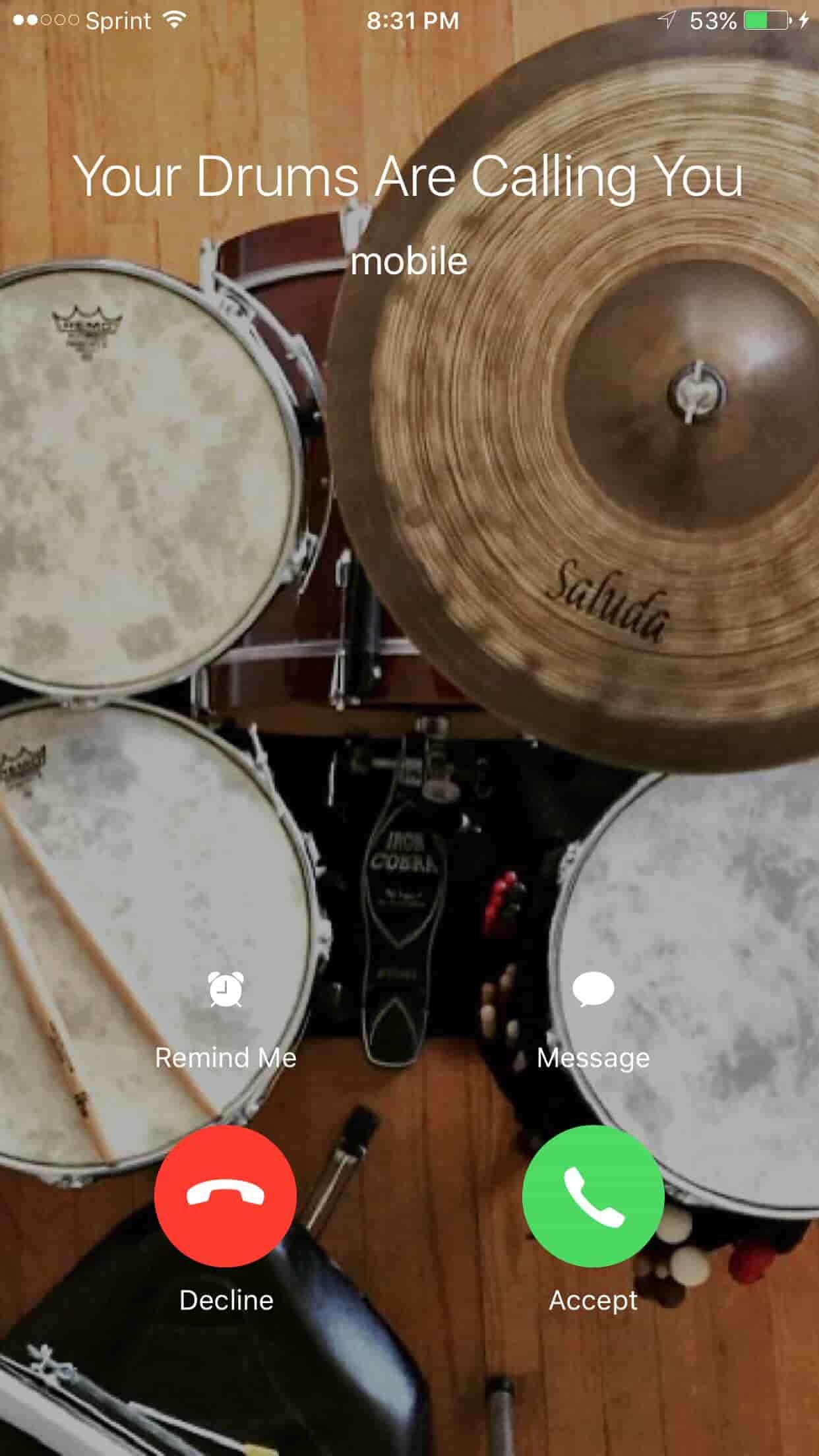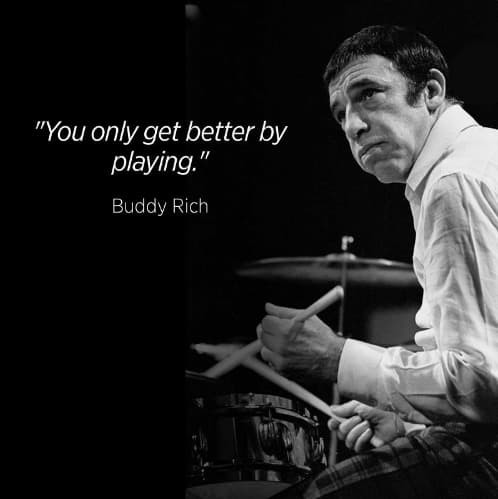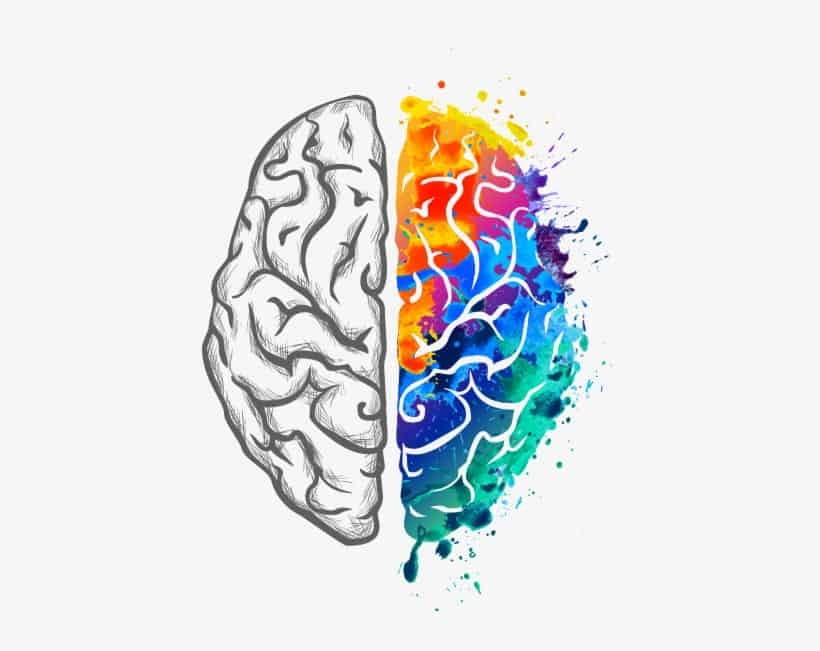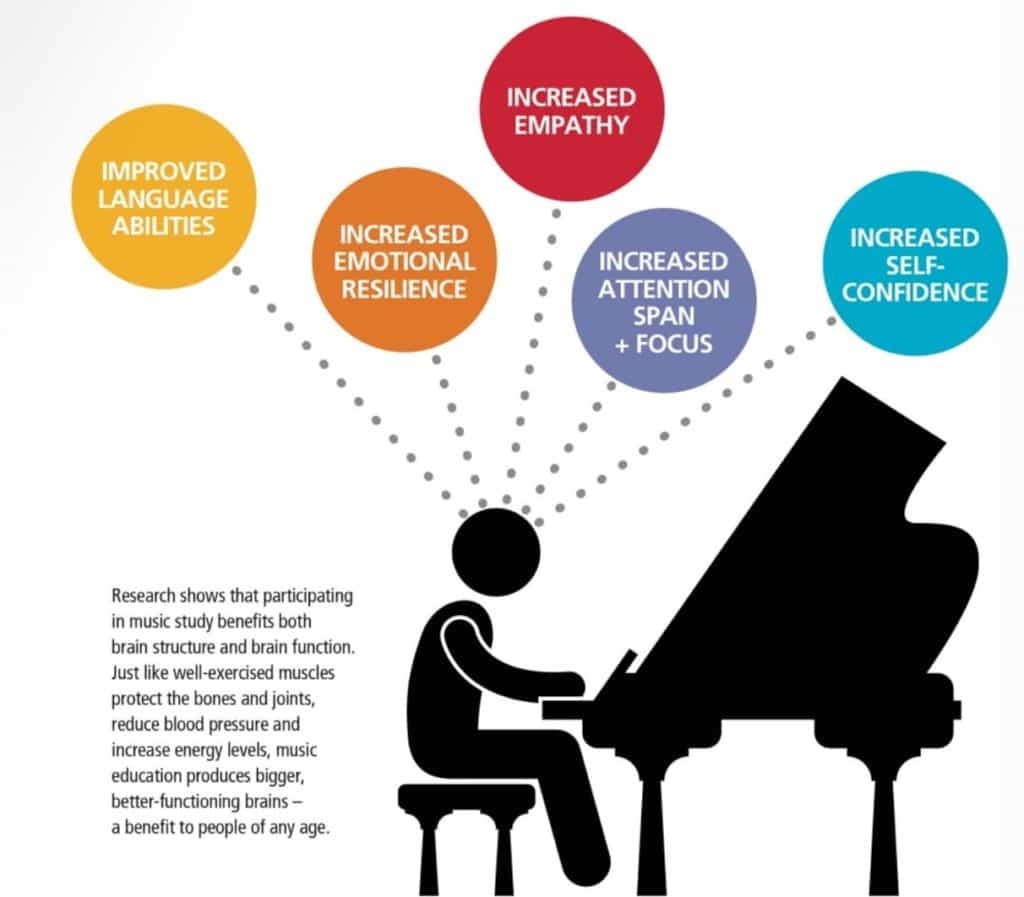Learning drums might seem daunting, but with the right approach, it can be an enjoyable and rewarding experience. At LEARNS.EDU.VN, we believe everyone can learn to play drums and we provide tailored resources to help you succeed. This article breaks down the challenges and offers practical advice, making your drumming journey smoother. Dive in to explore the realities of drumming and discover how accessible it truly is with proper guidance and dedicated practice.
1. Understanding the Initial Learning Curve
Is learning drums difficult initially? The good news is that grasping the basics of drumming is surprisingly accessible.
You can learn a simple beat and play along to a familiar song in as little as 30 minutes. This immediate gratification is a fantastic motivator. However, mastering the drums and gaining a deep understanding of rhythm and coordination takes time and consistent effort. Many learners achieve a solid understanding within two years. To reach a professional level of competence, seven to eight years of consistent practice are generally needed.
2. The Myth of Natural Talent
Do you need to be born with a natural talent for rhythm to learn drums? Many aspiring drummers worry that they lack the innate talent required to succeed.
Fortunately, this is largely a myth. While some individuals may naturally possess a stronger sense of rhythm, it is a skill that can be developed and improved through practice. Rhythm is an intrinsic part of human nature. Research from the University of California, Berkeley, suggests that rhythmic abilities are closely linked to cognitive functions that can be enhanced through musical training. Passion and consistent practice are far more critical for success than innate talent.
3. Defining Your Drumming Goals
How difficult learning drums will be depends on what you want to achieve.
If your goal is to play along with your favorite pop or rock songs and start a local band, you will find that the initial learning curve is relatively gentle. Many popular songs rely on a limited number of common drum beats, making it easy to quickly gain proficiency. However, as your aspirations grow and you aim to tackle more complex musical styles, the level of dedication required will increase. Developing the ability to keep time consistently, a crucial skill for playing in a band, requires ongoing practice and refinement.
4. Balancing Fun and Practice
Is it possible to learn drums properly and still enjoy the process?
Many beginners worry that practicing drums will be a tedious and joyless chore. The truth is, effective practice can be both productive and enjoyable. While some practice sessions may involve repetitive exercises aimed at improving technique or coordination, these are essential for building a solid foundation. Incorporating elements of fun, such as playing along to your favorite songs, can help maintain motivation and prevent burnout. Studies show that engaging with music you enjoy enhances the learning process and makes practice more sustainable.
4.1. Structuring Your Practice Time
How should you divide your practice time to maximize progress and enjoyment?
A useful tip from the renowned jazz drummer John Riley, author of ‘The Art of Bop Drumming’, suggests dedicating at least 50% of your practice time to addressing your weaknesses, while the remaining time should be spent playing what you love. This approach ensures that you are continuously improving while still enjoying the process of making music.
| Practice Focus | Percentage of Time | Description |
|---|---|---|
| Weakness Training | 50% | Focus on areas you find challenging, such as specific techniques, rhythms, or coordination exercises. |
| Enjoyable Playing | 50% | Play along to your favorite songs, improvise, or explore musical styles you enjoy to maintain motivation and fun. |




5. The Value of Drum Instruction
Is it more difficult to learn drums on your own versus with a teacher?
While self-teaching is possible, having a teacher can significantly accelerate your progress. A qualified drum instructor can provide personalized feedback, identify areas for improvement, and introduce you to techniques and concepts that you might not discover on your own. Engaging with a teacher provides insights from years of experience. As you progress, consider seeking guidance from experienced drummers who can offer advanced instruction and mentorship.
LEARNS.EDU.VN offers a variety of online courses and resources designed to help you learn drums effectively, even without access to in-person instruction.
6. Overcoming Age-Related Concerns
Am I too old to learn drums? Many adults worry that age will be a barrier to learning drums.
Although children’s brains have greater neuroplasticity, the adult brain is still capable of learning new skills. Studies in neuroscience show that adults can develop new neural pathways through dedicated practice. The primary obstacle for adult learners is often psychological. It is essential to embrace the beginner’s mindset and be patient with yourself as you develop new skills. Focus on enjoying the process of learning, and progress will follow.
7. Essential Skills for Professional Drummers
What skills are necessary to reach a professional level of drumming?
Professional drummers typically possess a wide range of skills and abilities that set them apart. These include:
7.1. Broad Musical Style Proficiency
Can professional drummers play various genres? Professional drummers can play different styles of music.
Professional drummers can seamlessly navigate various musical genres, from rock and pop to jazz, funk, and Latin.
7.2. Impeccable Timing
Is keeping great time essential for professional drummers? Yes, maintaining perfect timing is crucial for professional drummers.
Professional drummers have rock-solid timekeeping skills, ensuring that the music remains rhythmically stable and engaging.
7.3. Music Reading Ability
Do professional drummers read music? Reading music is generally expected of professional drummers.
While not always essential, the ability to read music opens up opportunities for studio work, orchestral performances, and collaboration with other musicians.
7.4. Improvisation Skills
Is improvisation an important skill for professional drummers? Yes, professional drummers need to know how to jam and improvise.
Professional drummers have advanced improvisational skills, allowing them to create spontaneous and engaging drum parts in live and studio settings.
7.5. Creative Musical Input
Do professional drummers create their own music? Yes, they create original ideas and solos.
Professional drummers can develop original musical ideas and drum solos, adding their unique voice to the music.
7.6. High-Quality Recording Skills
Do professional drummers need to record high-quality drum sounds? Yes, professional drummers need to produce excellent recordings.
Professional drummers can produce high-quality recording sounds, enabling them to capture their performances with clarity and precision.
7.7. Breaking Down the Intimidation Factor
How can beginners approach these skills without feeling overwhelmed?
While these skills may seem intimidating, remember that even the most accomplished drummers started as beginners. Focus on building a solid foundation in the fundamentals, and gradually expand your skills and knowledge over time.
8. Practical Tips for Beginners
How can beginners get started with learning drums?
Here are some actionable tips to help you on your drumming journey:
8.1. Start with the Basics
Focus on mastering basic drum beats and rhythms before moving on to more complex patterns.
8.2. Practice Regularly
Set aside dedicated practice time each day, even if it’s just for 15-20 minutes.
8.3. Listen Actively
Pay attention to the drumming in your favorite songs and try to identify the different rhythms and techniques being used.
8.4. Find a Teacher or Mentor
Consider taking lessons from an experienced drum teacher or seeking guidance from a mentor who can provide personalized feedback and support.
8.5. Join a Community
Connect with other drummers online or in person to share tips, ask questions, and find inspiration.
8.6. Be Patient
Learning drums takes time and effort, so be patient with yourself and celebrate your progress along the way.
| Tip | Description |
|---|---|
| Start with the Basics | Master fundamental beats and rhythms before advancing. |
| Practice Regularly | Dedicate daily time for practice, even if it’s brief. |
| Listen Actively | Analyze drumming in songs to understand techniques and rhythms. |
| Find a Teacher/Mentor | Seek guidance from experienced drummers for personalized feedback. |
| Join a Community | Connect with other drummers for support and inspiration. |
| Be Patient | Learning takes time; celebrate your achievements along the way. |
9. The Benefits of Learning Drums
What are the broader benefits of learning to play drums?
Learning drums offers numerous cognitive, physical, and emotional benefits, including:
9.1. Improved Coordination
Playing drums requires coordinating multiple limbs simultaneously, which can enhance your overall motor skills and coordination.
9.2. Enhanced Cognitive Function
Drumming engages various parts of the brain, which can improve memory, attention span, and problem-solving skills.
9.3. Stress Relief
Playing drums can be a cathartic and therapeutic activity that helps reduce stress and anxiety.
9.4. Increased Confidence
Mastering a musical instrument can boost your self-esteem and confidence.
9.5. Creative Expression
Drumming provides an outlet for creative expression and allows you to communicate your emotions through music.
Research from the Royal Conservatory of Music supports the idea that musical education, including learning drums, offers extensive benefits.
10. The Role of Technology in Drum Education
How can technology assist in learning drums?
Modern technology offers a variety of tools and resources to support drum education, including:
10.1. Online Lessons and Tutorials
Platforms like LEARNS.EDU.VN provide access to high-quality drum lessons and tutorials that can be accessed from anywhere in the world.
10.2. Drumming Apps
Various apps offer interactive drum lessons, rhythm exercises, and virtual drum kits that can be used for practice.
10.3. Metronomes and Drum Machines
These tools help drummers develop their timing and create backing tracks for practice and performance.
10.4. Recording Software
Recording software allows drummers to record their performances, analyze their playing, and create professional-quality recordings.
| Technology | Description | Benefits |
|---|---|---|
| Online Lessons | Platforms offering drum lessons accessible worldwide. | Convenient learning from anywhere. |
| Drumming Apps | Interactive lessons and virtual drum kits for practice. | Enhances skills and provides a fun learning environment. |
| Metronomes | Tools to develop precise timing. | Improves rhythm and consistency. |
| Recording Software | Software to record, analyze, and produce high-quality drum tracks. | Allows for self-assessment and professional recording capabilities. |
11. Maintaining Motivation and Avoiding Burnout
How can drummers stay motivated and avoid burnout?
Here are some tips for staying motivated and preventing burnout:
11.1. Set Realistic Goals
Establish achievable goals that you can realistically accomplish within a specific timeframe.
11.2. Celebrate Your Progress
Acknowledge and celebrate your accomplishments, no matter how small.
11.3. Vary Your Practice Routine
Incorporate different exercises, songs, and musical styles into your practice routine to keep things fresh and engaging.
11.4. Take Breaks
Schedule regular breaks during your practice sessions to avoid mental and physical fatigue.
11.5. Find a Drumming Buddy
Practice with a friend or fellow drummer to stay motivated and accountable.
11.6. Perform Regularly
Performing in front of an audience, whether it’s at a local open mic night or with a band, can be a great way to stay motivated and challenge yourself.
| Strategy | Description | Benefit |
|---|---|---|
| Set Realistic Goals | Define achievable objectives with timelines. | Provides a sense of accomplishment and direction. |
| Celebrate Progress | Acknowledge and reward achievements, no matter how small. | Boosts morale and reinforces positive habits. |
| Vary Practice | Mix exercises, songs, and styles. | Prevents boredom and enhances versatility. |
| Take Breaks | Schedule routine breaks during practice. | Reduces fatigue and maintains focus. |
| Find a Drumming Buddy | Practice with a friend or fellow drummer. | Offers support, accountability, and shared experiences. |
| Perform Regularly | Play in front of an audience at events. | Motivates practice and provides a challenge. |
12. Essential Drumming Equipment
What equipment is necessary for learning drums?
Here is a list of essential drumming equipment for beginners:
12.1. Drum Set
A basic acoustic or electronic drum set is essential for practicing and performing.
12.2. Drum Sticks
Choose a pair of drum sticks that are comfortable and well-suited to your playing style.
12.3. Practice Pad
A practice pad allows you to practice quietly without disturbing others.
12.4. Metronome
A metronome is essential for developing your timing and rhythm.
12.5. Ear Protection
Protect your hearing by wearing earplugs or headphones while playing drums.
| Equipment | Description | Purpose |
|---|---|---|
| Drum Set | Acoustic or electronic drums. | Primary instrument for playing and practicing. |
| Drum Sticks | Sticks suited to your playing style. | Used to strike the drums and cymbals. |
| Practice Pad | Pad for silent practice. | Allows practice without noise. |
| Metronome | Device for keeping time. | Essential for developing rhythm and timing. |
| Ear Protection | Earplugs or headphones. | Protects hearing during loud practice sessions. |
13. Learning Drums: A Realistic Timeline
How long does it realistically take to learn drums?
The timeline for learning drums varies depending on your goals, practice habits, and natural aptitude. Here’s a general guideline:
13.1. Beginner Level (3-6 Months)
At this stage, you will learn basic drum beats, rhythms, and techniques. You will be able to play along to simple songs and perform basic drum fills.
13.2. Intermediate Level (1-2 Years)
At this stage, you will expand your repertoire of drum beats, rhythms, and techniques. You will be able to play along to a wider range of songs and perform more complex drum fills.
13.3. Advanced Level (2+ Years)
At this stage, you will have a deep understanding of drumming theory and technique. You will be able to improvise, create your own drum parts, and perform in a variety of musical styles.
| Level | Timeframe | Skills |
|---|---|---|
| Beginner | 3-6 Months | Basic beats, rhythms, and techniques; play simple songs. |
| Intermediate | 1-2 Years | Expanded repertoire; play a wider range of songs and fills. |
| Advanced | 2+ Years | Deep understanding of theory and technique; improvisation and diverse musical styles. |
14. Common Mistakes to Avoid
What are some common mistakes that beginners make when learning drums?
Here are some common mistakes to avoid:
14.1. Neglecting the Fundamentals
Skipping over the basics and trying to learn advanced techniques too soon can hinder your progress.
14.2. Practicing Incorrectly
Practicing with poor technique can lead to bad habits and injuries.
14.3. Ignoring Timing
Failing to develop your timing and rhythm can make it difficult to play with other musicians.
14.4. Not Listening Actively
Not paying attention to the drumming in your favorite songs can limit your ability to learn new rhythms and techniques.
14.5. Giving Up Too Soon
Learning drums takes time and effort, so don’t get discouraged if you don’t see results immediately.
| Mistake | Consequence | Remedy |
|---|---|---|
| Neglecting Fundamentals | Hindered progress. | Focus on mastering basic techniques before advancing. |
| Practicing Incorrectly | Bad habits and injuries. | Ensure proper technique through guidance and self-awareness. |
| Ignoring Timing | Difficulty playing with others. | Develop timing and rhythm through dedicated practice. |
| Not Listening Actively | Limited ability to learn new techniques. | Pay attention to the drumming in your favorite songs. |
| Giving Up Too Soon | Missed opportunities for growth. | Be patient and persistent; celebrate incremental improvements. |
15. Finding the Right Drum Teacher
How do you find a good drum teacher?
Finding the right drum teacher is crucial for your success. Here are some tips:
15.1. Look for Experience
Choose a teacher who has extensive experience playing and teaching drums.
15.2. Check Credentials
Look for teachers who have formal training or certifications in music education.
15.3. Read Reviews
Read reviews and testimonials from other students to get an idea of the teacher’s teaching style and effectiveness.
15.4. Schedule a Trial Lesson
Schedule a trial lesson to see if the teacher is a good fit for your learning style and personality.
| Criterion | Description | Benefit |
|---|---|---|
| Experience | Teacher with significant playing and teaching history. | Demonstrates skill and knowledge. |
| Credentials | Formal training or certifications. | Guarantees a structured and effective teaching approach. |
| Read Reviews | Student testimonials. | Provides insights into teaching style and effectiveness. |
| Schedule a Trial | Trial lesson to assess compatibility. | Ensures a good fit for your learning style and personality. |
16. Drumming as a Career
How can you pursue a career as a drummer?
While a career as a professional drummer can be challenging, it is also incredibly rewarding. Here are some steps you can take to pursue a career in drumming:
16.1. Develop Your Skills
Practice consistently and strive to become the best drummer you can be.
16.2. Network
Connect with other musicians, industry professionals, and potential employers.
16.3. Build a Portfolio
Create a professional portfolio that showcases your skills and experience.
16.4. Promote Yourself
Use social media, websites, and other channels to promote yourself and your music.
16.5. Be Persistent
Pursuing a career in music requires persistence and dedication. Don’t give up on your dreams, even when faced with setbacks.
| Step | Description | Benefit |
|---|---|---|
| Develop Skills | Practice consistently to improve drumming abilities. | Ensures a high level of competence. |
| Network | Connect with industry professionals and other musicians. | Creates opportunities for collaboration and employment. |
| Build a Portfolio | Showcase skills and experience. | Provides potential employers with a clear view of your abilities. |
| Promote Yourself | Utilize social media and websites. | Increases visibility and reach. |
| Be Persistent | Remain dedicated and determined. | Overcomes challenges and achieves long-term goals. |
17. The Mental Aspect of Drumming
How does mental preparation impact drumming performance?
Mental preparation is just as important as physical practice when it comes to drumming. Here are some mental strategies to improve your drumming:
17.1. Visualization
Visualize yourself playing the drums successfully before each practice session or performance.
17.2. Positive Self-Talk
Use positive affirmations to boost your confidence and overcome negative thoughts.
17.3. Mindfulness
Practice mindfulness techniques to stay focused and present in the moment.
17.4. Goal Setting
Set clear and achievable goals to provide direction and motivation.
17.5. Stress Management
Learn effective stress management techniques to cope with performance anxiety.
| Mental Strategy | Description | Benefit |
|---|---|---|
| Visualization | Imagine successful drumming scenarios. | Enhances confidence and prepares the mind for performance. |
| Positive Self-Talk | Use affirmations to boost confidence. | Overcomes negative thoughts and increases self-belief. |
| Mindfulness | Stay focused and present. | Improves concentration and reduces distractions. |
| Goal Setting | Establish clear, achievable goals. | Provides direction and motivation for improvement. |
| Stress Management | Techniques to handle performance anxiety. | Helps maintain composure and perform at your best. |
18. The Social Aspect of Drumming
How can drumming improve social connections?
Drumming can be a great way to connect with others and build social relationships. Here are some ways drumming can enhance your social life:
18.1. Joining a Band
Playing in a band allows you to collaborate with other musicians and share your love of music.
18.2. Attending Drum Clinics and Workshops
These events provide opportunities to learn from experienced drummers and meet other enthusiasts.
18.3. Participating in Drum Circles
Drum circles are community events where people come together to play drums and percussion instruments in a group setting.
18.4. Teaching Others
Sharing your drumming knowledge with others can be a rewarding and fulfilling experience.
| Social Activity | Description | Benefit |
|---|---|---|
| Joining a Band | Collaborating with musicians. | Provides opportunities for musical expression and teamwork. |
| Drum Clinics & Workshops | Learning from experienced drummers and networking. | Enhances skills and fosters connections with other enthusiasts. |
| Drum Circles | Community drumming events. | Creates a sense of unity and shared enjoyment. |
| Teaching Others | Sharing drumming knowledge. | Reinforces your understanding and provides a sense of fulfillment. |
19. Overcoming Physical Challenges
How can you address potential physical challenges when learning drums?
Drumming can be physically demanding, so it’s important to address any potential physical challenges that may arise. Here are some tips:
19.1. Warm-Up Exercises
Perform warm-up exercises before each practice session to prepare your muscles and joints.
19.2. Proper Posture
Maintain good posture while playing to prevent back pain and other injuries.
19.3. Stretching
Stretch regularly to improve flexibility and range of motion.
19.4. Ergonomics
Set up your drum kit ergonomically to minimize strain on your body.
19.5. Seek Professional Help
If you experience pain or discomfort while playing, consult a doctor or physical therapist.
| Physical Aspect | Recommendation | Benefit |
|---|---|---|
| Warm-Up Exercises | Prepare muscles and joints before playing. | Reduces risk of injury and improves performance. |
| Proper Posture | Maintain good posture while playing. | Prevents back pain and other musculoskeletal issues. |
| Stretching | Regular stretching to improve flexibility. | Enhances range of motion and reduces muscle stiffness. |
| Ergonomics | Set up drum kit to minimize strain. | Prevents strain on the body. |
| Professional Help | Consult a doctor or therapist for pain or discomfort. | Ensures proper diagnosis and treatment. |
20. Frequently Asked Questions (FAQs)
20.1. How long does it take to learn basic drum beats?
You can learn basic drum beats in as little as 30 minutes with focused practice.
20.2. Is it necessary to read music to play drums?
While not essential, reading music can be beneficial for learning more complex rhythms and collaborating with other musicians.
20.3. Can I learn drums if I don’t have a drum set?
You can start learning basic rhythms and techniques using a practice pad or virtual drum kit.
20.4. What is the best age to start learning drums?
There is no best age to start learning drums. People of all ages can learn to play.
20.5. How often should I practice drums?
Aim to practice at least 15-20 minutes each day for optimal progress.
20.6. What are some common mistakes beginners make?
Common mistakes include neglecting the fundamentals, practicing incorrectly, and ignoring timing.
20.7. How can I stay motivated while learning drums?
Set realistic goals, celebrate your progress, and find a drumming buddy to stay motivated.
20.8. What equipment do I need to start learning drums?
Essential equipment includes a drum set, drum sticks, a practice pad, a metronome, and ear protection.
20.9. How can I find a good drum teacher?
Look for experienced teachers with good credentials and read reviews from other students.
20.10. What are the benefits of learning drums?
Benefits include improved coordination, enhanced cognitive function, stress relief, and increased confidence.
Conclusion: Embrace the Journey
Learning drums is a challenging but rewarding experience that can bring joy, creativity, and personal growth to your life. Remember that progress takes time and effort, so be patient with yourself and celebrate your achievements along the way.
Ready to start your drumming journey? Explore the comprehensive resources and personalized guidance available at LEARNS.EDU.VN. Unlock your potential and discover the joy of drumming.
For more information and to begin your musical adventure, visit learns.edu.vn today. Our address is 123 Education Way, Learnville, CA 90210, United States. Contact us via Whatsapp at +1 555-555-1212. We’re here to help you every step of the way!